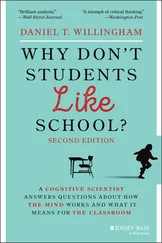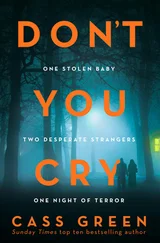She was a purebred German shepherd. She was twenty-two inches tall and already thirteen years old. Not that you could tell it from looking at her. Her coat had lost its luster, but that was about it. She was steady on her legs. She looked at the world calmly. She had dignity. And, above all, she had love.
The first dog was Guitar.
The second was Goodnight.
Two men got out of the truck. One was the Hellhound. Another was a Samoan. This was not, however, that Samoan—not the Hellhound’s bodyguard and right-hand man. He was a towering giant, six foot two, but he wasn’t that towering giant. He had the same face, but the tattoos on his arms, torso, and thighs were a little different. This Samoan was a devout Muslim who prayed five times each day without fail and spoke English with a Samoan accent and Urdu and Pashto with an English-Samoan accent. He had never once stepped into the boxing ring, but he was American Samoa’s top wrestler. He had even been invited to join a sumo stable in Japan. This Samoan was the number two, as it were, of that Samoan. The other Samoan’s alter ego. His twin brother. He was here in Central Asia serving as the Hellhound’s bodyguard, just as his older brother had. His older brother had stayed in Mexico to run the business while the boss was away. The Hellhound had expanded his operations into Asia. The summit in Samoa had been a success, and four years earlier the Hellhound had teamed up with the organization over here. Then, without any warning, the Asian organization’s boss died. It had happened two years earlier: one day, he got into a rage about some disagreement with a Chinese-Malaysian organization and he suffered a heart attack, and that was that. The Hellhound had pretty much taken charge of the dead boss’s territory—he had mollified the Chinese-Malaysians by helping them make some very profitable connections in the Nuevo Mundo . It was inevitable that the Samoan—the younger brother, of course—would become his local representative. And so the Hellhound had two right-hand men, both more or less identical in appearance: one to the west and one to the east of the Pacific Ocean. Two men. Two places. The past four years had seen other additions to the two theme as well. When the Hellhound succeeded in expanding his operations, La Familia’s Don sent him a second beautiful wife. A slim woman with very large breasts.
And there was more.
The Hellhound had a new dog as his alter ego. The second generation.
The exchange would be taking place at the village meeting place. A group of Pashtuns, none of them Pakistani citizens, was waiting there for the Hellhound and his associates. And for the dog. They were holding automatic rifles and a sample of the product. The latter wasn’t out in plain view, it was inside a metal briefcase. The dog would be able to evaluate the quality of the drugs through the metal. The Pashtuns hadn’t believed the rumors until they actually saw the dog do its stuff. They had lived all their lives in the hills, and the only dogs they were familiar with were strays and half-pets that they treated like strays. As far as they were concerned, dogs were unclean. It was as simple as that. But not this one. This dog had huge power over their livelihoods. When he growled, he might as well have been speaking in dog language: THIS IS INFERIOR, WE CAN’T BUY SHIT LIKE THIS. He had never once made a mistake. He noted the slightest decline in purity, whether it was an intentional effort to play fast and loose with the Hellhound and his group or not. He noted it and pointed it out.
In dog language.
They had learned their lesson. You couldn’t fool this dog’s nose.
The Hellhound greeted the Pashtuns. The Samoan greeted the Pashtuns. He was interpreting for the Hellhound. The men sat down in a circle in the meeting place, and the Samoan conveyed his boss’s words to the Pashtuns. An old Pashtun whose beard was going white nodded.
Guitar padded over to the briefcase and sniffed it.
Four years earlier, on Tutuila Island, the Hellhound had lost his first alter ego. Cabron, the mongrel the Don had given him as proof of his status as a member of La Familia. He had lost the dog, but not his mongrel seed. Cabron’s six-month-old son had survived. He had emerged unscathed from the accident that instantly killed both his father and his brother. The Hellhound hadn’t been on the scene of the accident. He had sent the dogs out on their own to get a bit of fresh air after the successful conclusion of the summit. “Go on, boys,” he said. “You were the stars of the show. Take a break.” He thought they might like to go to the beach and horse around, a father and his two sons doing the “dog family taking it easy in the South Seas” thing—what a scene, just like a postcard. But it had ended in tragedy. Fortunately, there had been a witness, so he was able to learn in detail what had happened. The Hellhound rushed to the scene and burst out wailing. At least one dog had been saved, though—that moved him profoundly. It was a miracle: according to the witness, a German shepherd that had been wandering around in the area had sprinted over and saved Cabron’s son in a manner that was all but suicidal. The German shepherd had recently been rescued. She’d come from Oahu, up in the North Pacific, and ended up adrift on the ocean… The puppy and the dog who saved him were still there at the scene of the accident—or rather just beside it, at the side of the road. The puppy, the son of now-dead Cabron, was pressed against his savior’s stomach, and the German shepherd was letting him suck on her teats. Oooaaoo, aaoooooh , the Hellhound moaned. The scene tugged almost violently at his heartstrings. It was a miracle, a true miracle. He was convinced of it. A dog who had drifted across the sea from Hawaii had saved the child of his alter ego, here in Samoa? Without realizing what he was doing, he was kneeling on the ground before the German shepherd, crossing himself. “I swear to you I’ll never forget this!” he cried. “So long as I live!” And he kept his promise.
On December 21, 1975, the German shepherd entered Mexico. She arrived in Mexico City and became a dog of the twentieth parallel north. Yes, her: Goodnight.
Finally she had left that enormous space called “America.”
Two months and ten days had passed since she had stopped being a dog of the twenty-first parallel north.
And then there was the other dog, Cabron’s child, who had also returned alive to Mexico City. Yes, Guitar.
Guitar knew. He understood that Goodnight was his second mother.
And the Hellhound knew. He understood that he should keep the two dogs together, treat them as mother and son.
Guitar had lost his true mother, lost his father, and acquired a second mother. There on a roadside on Tutuila Island he had regressed into an infantile state, lost all memory of his first six months. He believed his second mother had suckled him, and she, too, believed that he was her true child, the true fruit of her womb. It had seemed unlikely, given the shocks Guitar had endured—two sudden deaths in just six months—that the profound psychological wounds he had suffered would ever heal, but they did. The love of mother number two, pure and overflowing, enabled him to forget those two traumas. Two minus two equals zero. At the same time, Guitar never did forget the special ability he had learned. That ability, that power , had been pounded into him, and he clung to it. It was his father who taught him that, his father Cabron—no longer of this world, no longer present even in Guitar’s memory—who had himself acquired the ability as a sort of trick only because of his fixation on a certain bitch. The bitch, a Labrador retriever who belonged to the Mexican Federal Police, and whose talents as a drug-sniffing dog were without peer. How sad to think of that poor bitch, her life snuffed out on the first Sabbath of August 1975, then erased as well from Guitar’s memory. And yet that power of hers lived on.
Читать дальше












